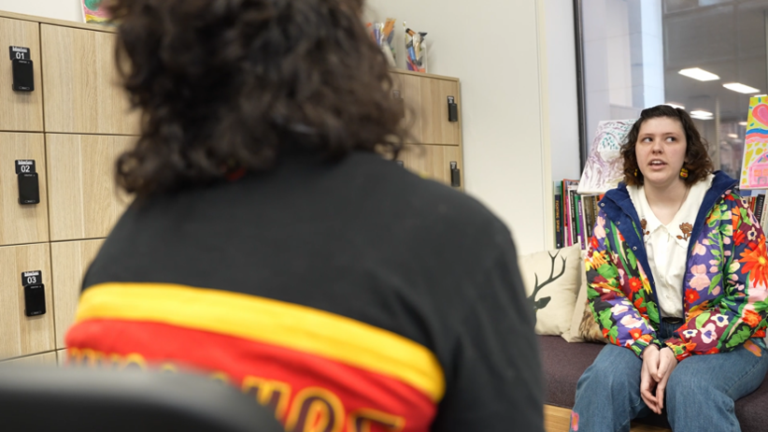How to apologise
The way you react if a disabled young person raises a concern with you, or you make a mistake, will impact their sense of comfort and safety with you and your organisation.

This is true for both staff that work directly with disabled young people, and management who oversee the staff and/or run the organisation.
If you make a mistake, it’s important that you acknowledge the error and respect what the disabled young person is telling you.
Basics of an effective apology
There are a few important parts to an effective and genuine apology.
The information below can help you start.
It’s important to acknowledge what was causing the problem in the first place. It’s also important to specifically say the word ‘sorry’ to indicate your intent.
You can even just say the phrase “I am sorry for…”
This section shows that you understand the impact of the problem, and how it affected the person you’re apologising to. It indicates that you actually understand what the problem is, you’re not just apologising to placate the person.
A starting sentence can be “It was wrong because…”
This is usually more appropriate in an interpersonal basis. In this instance, while you may not be able to apologise for an action, you can apologise for the failure to prevent it – i.e. there aren’t systems in place, or those systems failed.
Sometimes things can truly happen by accident, but that usually means there’s something wrong with a system. As the service provider, it is up to your organisation to put in place mechanisms to avoid problems happening, and so you may need to take accountability.
A sentence that can start this is “I accept full responsibility for what I did/said” or “We understand there was an accident, but we as [service provider name] should have policies/procedures/systems to prevent that.”
All most people want in this part of an apology is accountability.
Sometimes when you need to apologise to someone, they have an idea how amends can be made. This might not always be the case, so it may help to have options, but only provide these if a person says they don’t know how to fix the problem, or make it up to them.
A sentence you can use to start this is “How can I make this better” or “what can we do to fix this?”
Sometimes a person may have an idea which isn’t feasible – maybe you don’t have the resources, or maybe legally you can’t action it. If this occurs, be up front about that. Explain to them why you can’t do that specific action, and work together to identify one that both parties can agree to.
Here you explain what steps you are going to take to prevent the problem from happening again. Maybe it’s updating policy and procedure, maybe it’s just checking your language. Either way, it shows you’ve thought about the problem and what you can do to avoid it.
This also provides some accountability – by committing to not doing it again, you’ve made a promise towards change.
A sentence that can start this is “Moving forward I promise to…” or, “From now on….. “
You should never assume that a person has forgiven you, just because you’ve apologised. There is a real chance that the person feels hurt by the actions, and it can take time to come to terms with those feelings.
Additionally, a person doesn’t need to accept your apology. Having a well thought out one, which shows understanding and commitment to change makes it more likely they will, but that’s not guaranteed. If this does happen, don’t keep asking for them to forgive you, rather, give them space and consider revisiting the issue at a later time. Additionally, this gives you time to focus on actions rather than words – show the change rather than just talk about it.
A sentence you can use to start this conversation is “I understand if you won’t, but will you accept my apology?“
It can be a scary thing to raise a concern to someone, and there are many barrier for disabled young people to do this – both interpersonally and through more official channels.
Thanking them acknowledges their bravery, and empowers them to continue to self-advocate and speak up.
You can do this by saying “Thank you for bringing this to my attention“
Language to avoid
There are some statements or words that can be understood as dismissive, patronising, or even make the person receiving the apology feel blamed.
These should be avoided, particularly when apologising to disabled young people, as it discourages speaking up, and leads to disempowerment.
Some examples are:
- I’m sorry you feel that way
- I’m sorry you misinterpreted what I said
- You misunderstood the situation
- It’s your fault
- I’m sorry, but…
- What about that time you…
Try to avoid dismissing the disabled young person’s concerns by justifying or explaining your own behaviour.